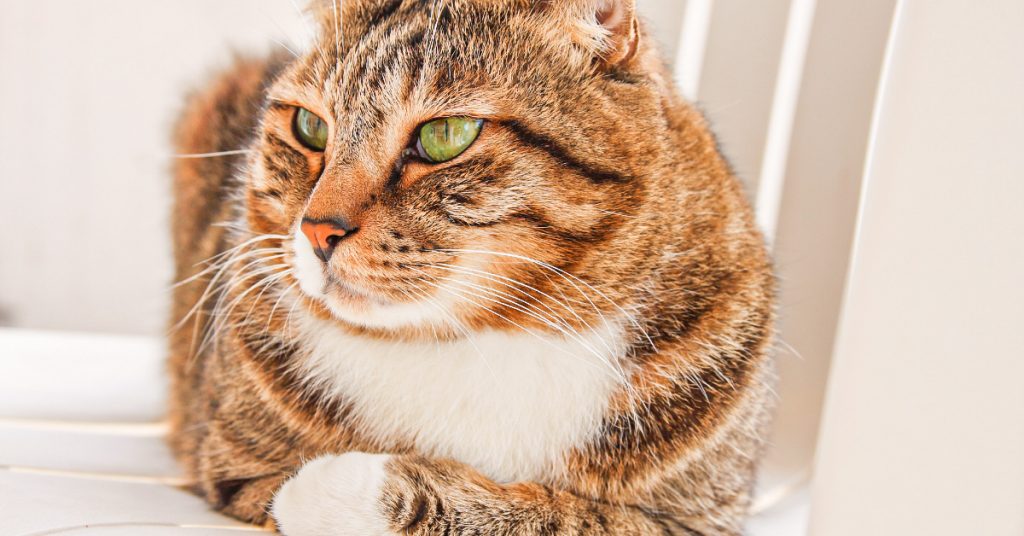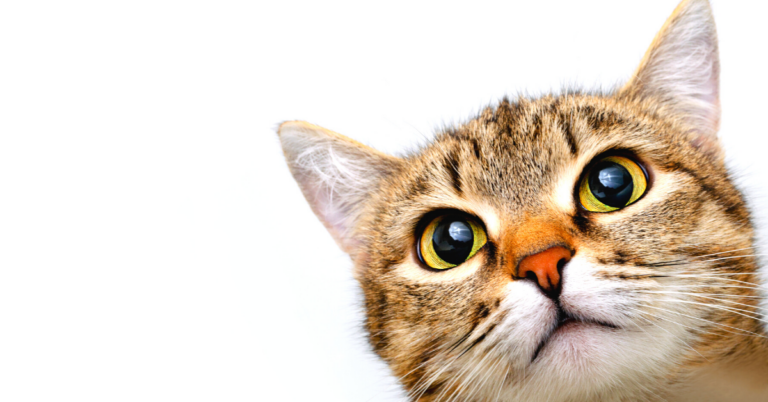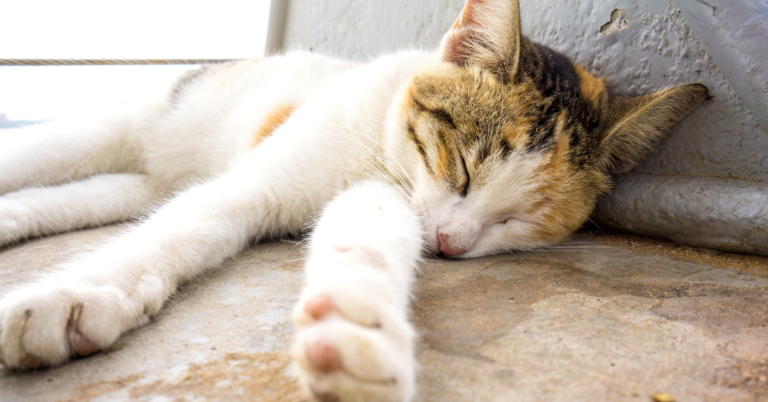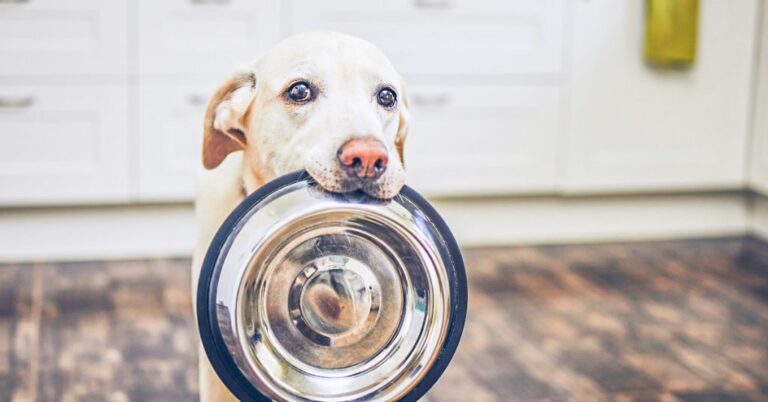Can Cats Get Colds?
Reviewed by Erica L. Tramuta-Drobnis, VMD, MPH, CPH
I was recently asked if cats get colds, and how do you know if they have one or not?
Cats can indeed get ‘colds’ just like us humans do, and most of these illnesses will give you nothing to worry about. A ‘cold’ is basically an upper respiratory infection, usually either viral or bacterial in origin.
Feline herpesvirus and feline calicivirus are the most common causes of upper respiratory signs or a ‘cold’ in cats. With herpesvirus, once they have the infection, they will always carry the virus. They can (but may never) develop future recurrences even though the clinical signs resolve initially.
Like most of us, when we feel under the weather, your cat may show some behavior changes or outward signs, just like people. So, regularly monitor your pet for any unusual behavior, making a note of the changes, and informing your vet if needed.
However, keep in mind, cats also hide illness and tolerate illness much better than people do. So monitor your cat closely. When signs do develop, they may be a lot sicker than they let on.
What Are The Signs of a “Cold” in Cats?
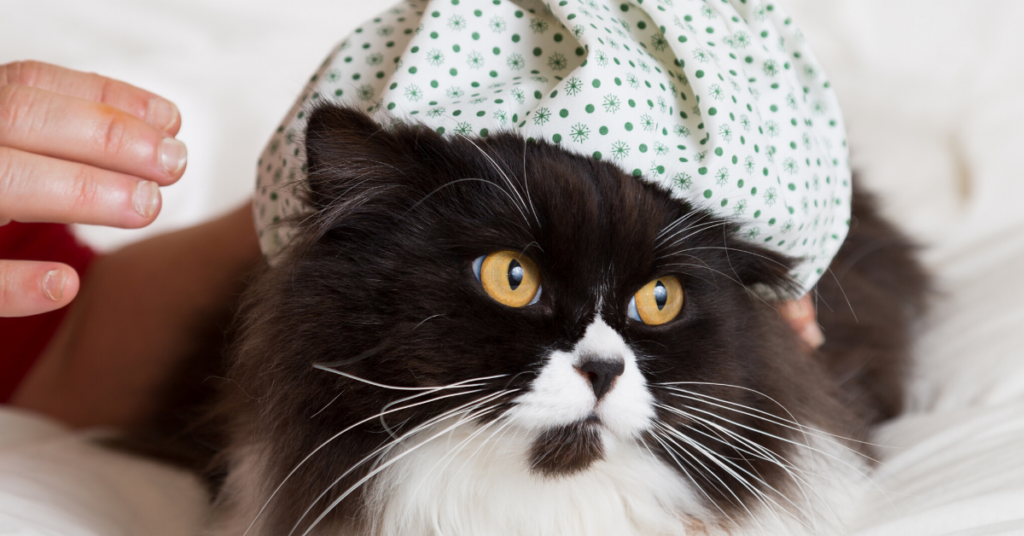
We commonly see signs such as sneezing, eye discharge, blinking or holding an eye closed, or discharge from the nose.
If you notice any of these signs, they could be signs of a ‘cold.’
Most signs resolve on their own without treatment. A ‘cold’ may last 7-10 days for the average cat with mild clinical signs.
Some cats develop additional signs, including a loss of appetite. This occurs because of nasal congestion leading to loss of smell. Cat appetite is tied to the ability to smell. When they cannot smell, they cannot taste well and lose their appetite.
However, some upper respiratory infections can be more severe than the common ‘cold’ and may lead to lower airway diseases like pneumonia or could represent feline asthma. We can see wheezing or even trouble breathing in these cats. These pets will need a veterinarian evaluation and treatment.
Cats with a ‘cold’ typically do not cough. Coughing in cats is most associated with feline asthma. If you notice your cat coughing visit your veterinarian.
If your cat is lying around, weak, having trouble breathing, or does not eat for 24 hours or more, then your pet needs to be evaluated. Seek help immediately if you think there is trouble breathing. Do not wait.
Most ‘colds’ in cats are just that, a cold. They resolve on their own. As long as your cat is eating well, they are usually not a cause for alarm.
How to Diagnose
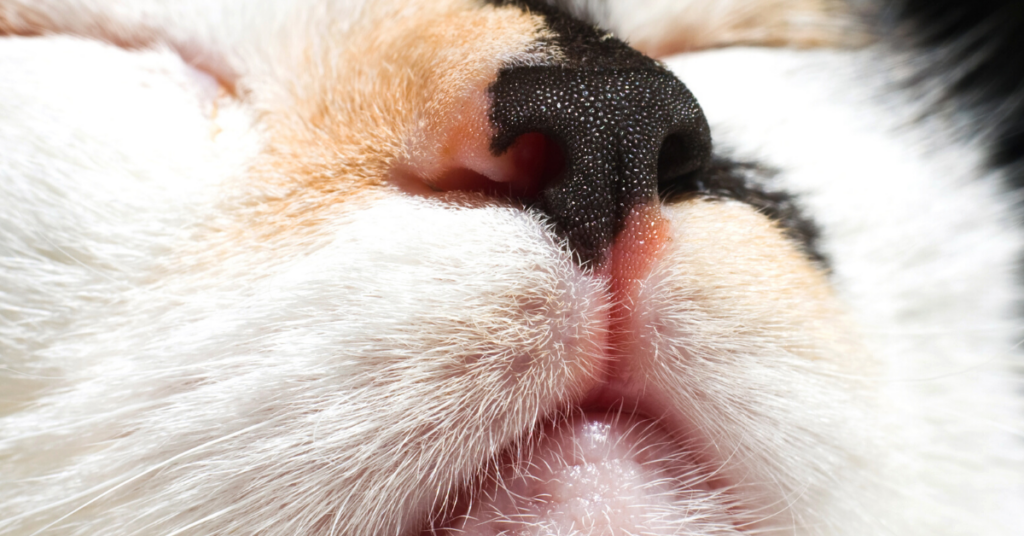
Usually, your vet will diagnose an upper respiratory infection (or a ‘cold’) based on the signs your cat is showing and the pet’s history.
Previous infections, exposure to a new or other cat, animals that go outdoors, and an animal with recent stress, weakening the immune system can lead to an upper respiratory infection.
Vets will usually treat symptomatically, if even at all, unless signs worsen. The goal is to ensure they are eating well and not having breathing difficulties.
When cats do not improve after 3-5 days or get worse at any time, tests may be performed. Diagnostics may include chest X-rays, bloodwork to screen for various airway organisms, or even a swab taken from the nose may be evaluated for multiple organisms.
The common cat ‘cold’ is not contagious to people but can be easily transmitted from one cat to another.
If your cat normally goes outdoors, keep him/her indoors for 14 days until all signs have resolved. Do not bring another pet into the home while cats are sick. Quarantine any new cat you bring into the home away from other cats for 14 days minimum before introducing them to minimize exposure.
Most ‘colds’ are spread by sneezing and droplets onto surfaces, into shared water and food bowls, making it easy to spread from one cat to another. However, just because one cat in your home has a cold, does not mean they all will get sick.
How to Treat a Cat Cold
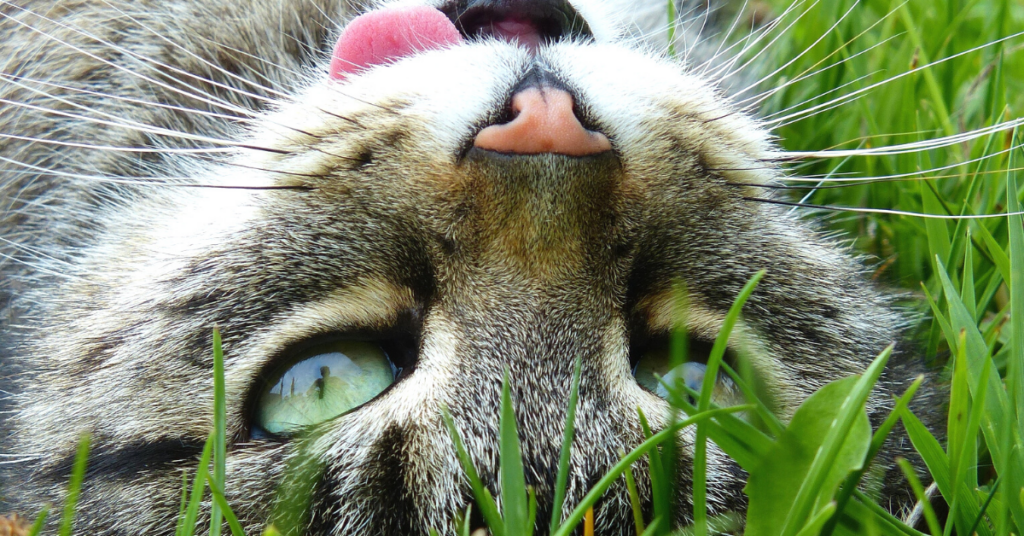
Keep your pet’s nose clean by wiping it with a soft cloth. Cats do not eat if they cannot smell their food, so it is essential to make sure the nose is kept clean.
Please feed your pet any diet that it will eat. You may need to warm up the food or feed incredibly stinky foods such as canned tuna, chicken baby food, or fish-flavored cat foods. Remember, if they cannot smell it, they will not eat it.
Feeding wet food over dry is ideal because it will help keep them better hydrated, and it is more likely that they will smell it.
If your cat is stuffed up or notices the pet breathing from the mouth a bit, placing a humidifier in its space will help.
Alternatively, run the shower for a while, getting your bathroom all steamy, then place the kitty in the room for 15-20 minutes. This will help to break up secretions and allow them to breathe better.
Monitor your pet for coughing, difficulty breathing, not eating for more than 24 hours, severe lethargy or vomiting, and diarrhea. These are not normal for cats with a ‘cold.’ Contact a veterinarian should any of these occur.
Do not give any over-the-counter human medications without consulting a veterinarian. Many can be toxic to cats.
When To See a Vet
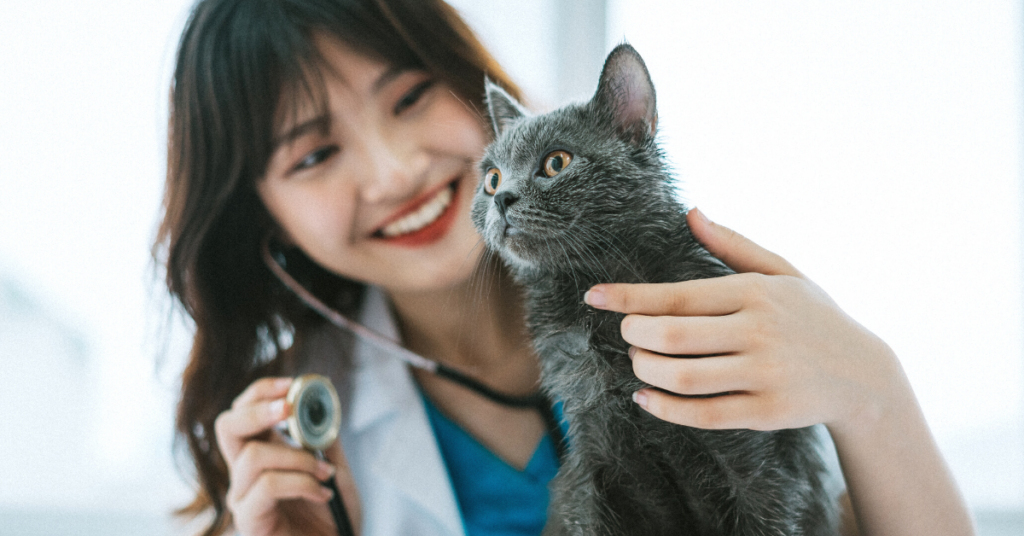
When in doubt, call your vet. If your cat is behaving abnormally in any way, better to ask earlier rather than too late.
Older cats or cats with underlying health conditions are at higher risk for more severe disease. They may require treatment as well as evaluation earlier rather than later.
Remember, cats with a ‘cold’ will usually improve in 7-10 days on their own. However, if your cat is not improving after 3-5 days or at any time is getting worse, call a veterinary professional immediately.

